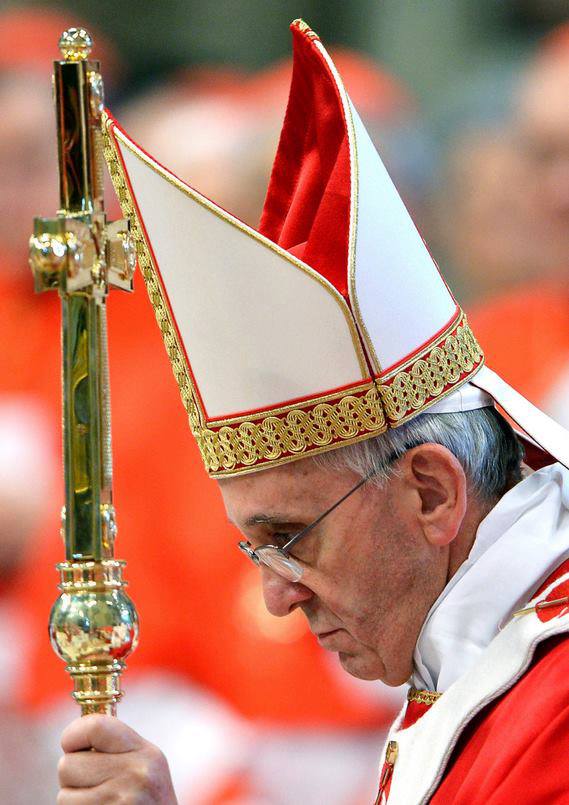Pope Francis, the spiritual leader of the Catholic Church, has consistently used his platform to address pressing global issues through his monthly prayer intentions. These intentions serve as a guide for Catholics worldwide, encouraging them to reflect on various themes that align with the Church's mission and values. As we look ahead to 2024, Pope Francis continues this tradition by setting forth specific prayer intentions for each month, focusing on topics ranging from environmental stewardship to social justice and communal responsibility.
Through these prayer intentions, Pope Francis not only highlights critical concerns affecting humanity but also invites believers to engage actively in addressing these challenges. His approach underscores the importance of unity and collaboration within the Church and beyond, fostering a sense of shared purpose among all people of goodwill. This article delves into some of the key prayer intentions set by Pope Francis for 2024, offering insights into his spiritual priorities and the broader implications they hold for the global community.
Listening to the Earth's Cry
In September, Pope Francis directs our attention towards the environment with his prayer intention: For The Cry Of The Earth. Through a heartfelt video message, he urges everyone to listen deeply to the earth's plea for care and protection. This call resonates strongly amidst growing environmental crises, emphasizing the urgent need for sustainable practices and responsible stewardship of natural resources.
The Pope's emphasis on hearing the cry of the earth serves as a reminder of humanity's interconnectedness with nature. It calls upon individuals, communities, and nations to reassess their relationship with the planet and adopt lifestyles that promote ecological balance. By doing so, we honor God's creation and ensure a livable future for generations to come.
This intention challenges us to move beyond mere awareness and take concrete actions to protect our environment. Whether through reducing waste, conserving energy, or advocating for policies that safeguard ecosystems, each person can contribute to healing the earth. Pope Francis invites us to embrace this responsibility wholeheartedly, making it an integral part of our faith journey.
Vocations to Priesthood and Religious Life
For February, Pope Francis focuses on vocations to the priesthood and religious life. Reflecting on his own experience of discernment at the age of seventeen, he acknowledges the transformative power of answering God's call. This intention highlights the significance of nurturing vocations within the Church, ensuring its continued vitality and mission.
The Holy Father encourages young people to explore their potential contributions to the Church, whether as priests, religious sisters or brothers, or lay ministers. He emphasizes the importance of supportive environments where discernment can flourish, free from societal pressures or expectations. Such spaces allow individuals to hear and respond authentically to God's invitation.
Moreover, this intention prompts parishes and communities to foster a culture of vocation awareness and support. By praying for those considering religious life and offering practical assistance during their discernment process, we strengthen the Church's capacity to serve others effectively. Pope Francis reminds us that every vocation enriches the Body of Christ and contributes uniquely to its mission.
A Call for Shared Mission
In October, Pope Francis introduces the theme For A Shared Mission, urging all faithful to participate fully in the Church's apostolic work regardless of their vocation. This intention reflects his vision of a synodal Church characterized by active participation, communion, and shared responsibility among priests, religious, and laity alike.
The concept of shared mission extends beyond traditional roles, inviting everyone to collaborate in building up the Kingdom of God. It challenges existing structures and hierarchies, promoting inclusivity and mutual respect across different ministries. By embracing this vision, the Church becomes more responsive to contemporary needs while remaining faithful to its core mission.
This intention also calls for ongoing dialogue and cooperation between various sectors within the Church. It encourages innovative approaches to evangelization and service, leveraging diverse talents and perspectives for greater impact. Pope Francis envisions a Church where all members feel empowered and valued, contributing collectively to its growth and transformation.
Praying for Political Leaders
During August, Pope Francis directs his prayers towards political leaders, asking that they may truly serve their people. In an era marked by political polarization and mistrust, this intention carries profound significance, reminding us of the crucial role politicians play in shaping societies.
The Pope's prayer underscores the moral responsibilities inherent in public service, calling leaders to prioritize the common good over personal interests or partisan agendas. It invites citizens to hold their representatives accountable while simultaneously supporting them in fulfilling their duties justly and wisely. Such engagement fosters healthier democracies grounded in integrity and compassion.
Furthermore, this intention challenges us to pray not only for current leaders but also for aspiring ones, cultivating virtues like humility, courage, and wisdom among future generations of policymakers. By doing so, we contribute to creating governance systems that reflect Gospel values and promote peace, justice, and human dignity worldwide.
New Technologies and Human Relationships
Addressing the impact of technology on human interactions, Pope Francis expresses concern about preserving authentic relationships amid rapid advancements. His intention seeks to ensure that new technologies enhance rather than diminish interpersonal connections, respecting individual dignity and fostering meaningful communication.
As digital tools increasingly permeate daily life, there is a risk of depersonalization and isolation if misused or over-relied upon. The Pope advocates for balanced integration of technology into society, prioritizing human-centered design principles that prioritize empathy, solidarity, and genuine encounter over efficiency alone.
This intention also invites reflection on how technological innovations can be harnessed positively to address global challenges such as poverty, education disparities, and healthcare access. By aligning tech development with ethical considerations, we uphold the sanctity of human life and advance the common good in alignment with Christian teachings.

